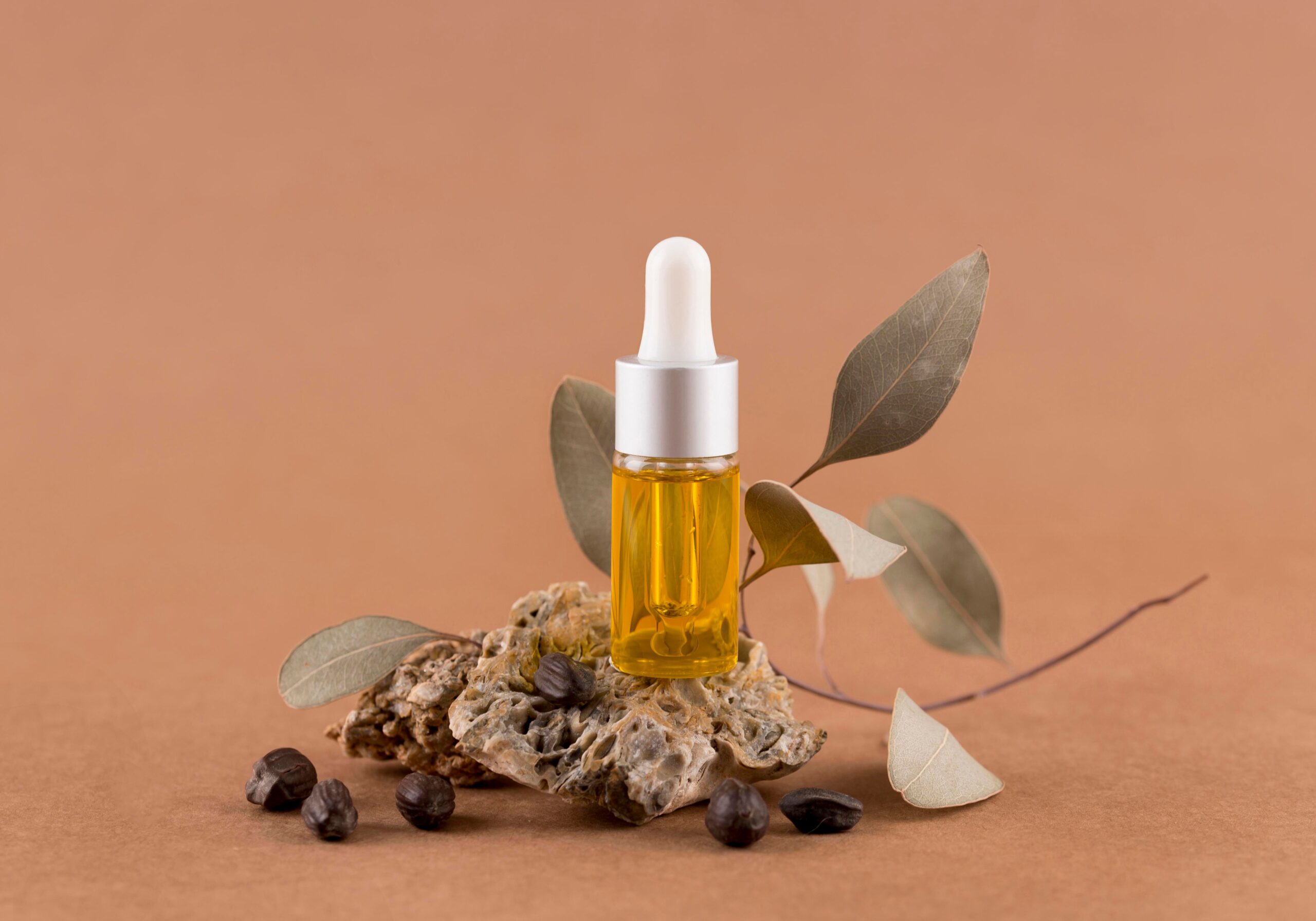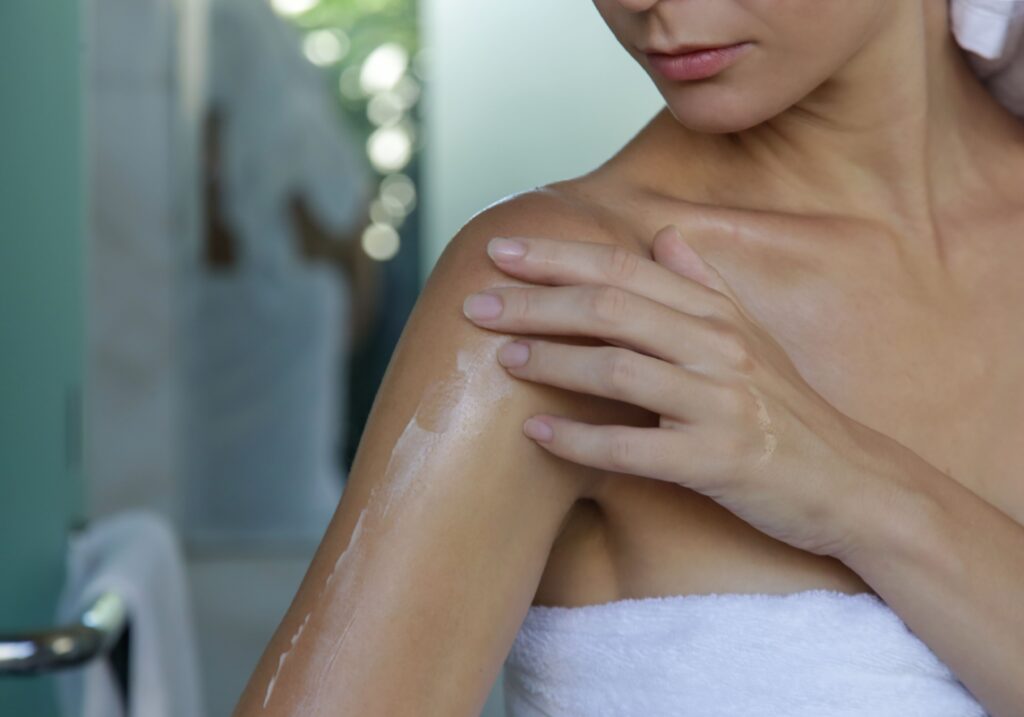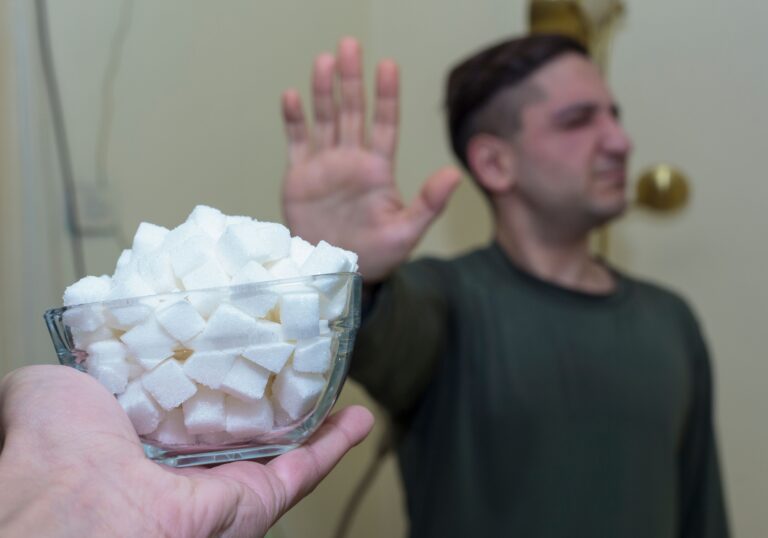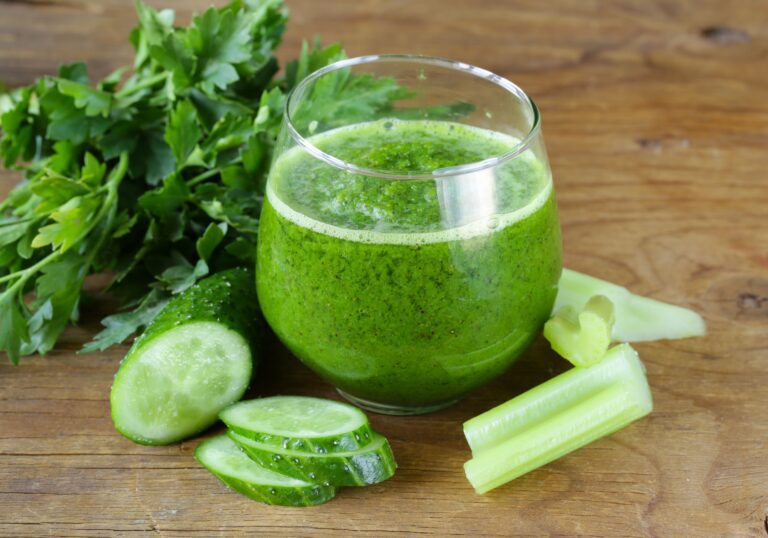The Magic Elixir: The Top 7 Benefits of Jojoba Oil for Skin Nourishment

Ever wonder why some people can effortlessly maintain their skin’s natural glow? Their secret may be hidden not in high-end beauty products but in one of Mother Nature’s gifts: Jojoba Oil. Extracted from the seeds of the jojoba plant, this oil is a treasure trove of benefits for the skin. Whether you’re battling dryness or aging or just want to enhance your natural glow, jojoba oil has got you covered.
From its ability to moisturize and nourish the skin to its remarkable anti-aging properties, this versatile oil is a must-have in any beauty regimen. Say goodbye to dull and tired-looking skin and say hello to a youthful and luminous complexion. Discover the transformative benefits of jojoba oil for skin and unleash your skin’s true potential.
Need more convincing? Let’s dive into the wonders of jojoba oil.
What Is Jojoba Oil?
Jojoba oil, pronounced ho-ho-ba, is a golden liquid extracted from the seeds of the jojoba plant, scientifically known as Simmondsia Chinensis. Native to the arid regions of the southwestern United States and northern Mexico, this plant has been used for centuries by Native Americans for its medicinal and cosmetic properties.
Unlike other oils, jojoba oil is not technically an oil but rather a liquid wax. It closely resembles sebum, a natural oil produced by our skin, making it an excellent moisturizer and emollient. This unique characteristic allows jojoba oil to penetrate the skin deeply, delivering nourishing properties without clogging pores or leaving a greasy residue.
Jojoba oil is rich in essential fatty acids, vitamins, and antioxidants, making it a powerhouse ingredient for skincare. With its ability to mimic our skin’s natural oils and impressive nutrient profile, jojoba oil is a true skincare superhero.

The History of Jojoba Oil in Skincare
The use of jojoba oil in skincare dates back centuries. Native Americans, particularly the O’odham tribe, were the first to recognize the benefits of jojoba oil for both skin and hair. They used it to moisturize and protect their skin from the harsh desert environment.
In the 1970s, jojoba oil gained popularity in the beauty industry as a natural alternative to synthetic oils. Its similarity to human sebum and its nourishing properties make it an ideal ingredient for skincare products. Since then, jojoba oil has become a staple in the cosmetic industry, known for its versatility and effectiveness.
Benefits of Jojoba Oil for Skin
Jojoba oil’s unique composition sets it apart from other oils commonly used in skincare. It primarily comprises wax esters, which are long-chain fatty acids bonded to long-chain alcohols. These wax esters give jojoba oil its liquid wax consistency, making it highly compatible with our skin.
Additionally, jojoba oil is non-comedogenic, meaning it does not clog pores. This makes it suitable for sensitive skin and reduces the risk of irritation or breakouts. Its non-greasy texture absorbs quickly into the skin, leaving it soft, supple, and nourished.
1. Moisturizes and Nourishes the Skin
Jojoba oil is a powerful moisturizer that deeply hydrates the skin. Its molecular structure allows it to penetrate the skin’s surface, delivering essential nutrients and locking in moisture. This helps to prevent dryness and keep the skin hydrated throughout the day.
Unlike many moisturizers that simply sit on top of the skin, jojoba oil forms a protective barrier that helps seal moisture. This barrier also helps to shield the skin from environmental aggressors, such as pollution and harsh weather conditions.
Regularly using jojoba oil can improve the skin’s overall hydration, leaving it soft, smooth, and plump. It is particularly beneficial for dry and dehydrated skin, as it replenishes and restores the skin’s natural moisture balance.
2. Helps To Reduce the Signs of Aging
One of the most remarkable benefits of jojoba oil is its anti-aging properties. It contains powerful antioxidants, such as vitamins E and C, which help combat free radicals’ damaging effects. Free radicals are unstable molecules that can cause oxidative stress and accelerate aging.
By neutralizing free radicals, jojoba oil helps to protect the skin from premature aging, including the formation of fine lines and wrinkles. It also supports the skin’s natural collagen production, essential for maintaining its firmness and elasticity.
Jojoba oil closely mimics our skin’s natural sebum, making it non-comedogenic (it doesn’t block pores). This means it moisturizes and softens your skin without causing breakouts or blackheads – an uncommon trait for most oils!
Regularly applying jojoba oil to the skin can help reduce wrinkles, fine lines, and age spots, giving you a more youthful and radiant complexion. Its ability to nourish and rejuvenate the skin makes it a valuable addition to any anti-aging skincare routine.

3. Soothes and Calms Irritated Skin
Thanks to its anti-inflammatory properties, jojoba oil is a soothing remedy for irritated and inflamed skin. It helps to reduce redness, swelling, and itching, making it beneficial for conditions such as eczema, psoriasis, and rosacea.
Jojoba oil’s gentle nature makes it suitable for sensitive skin, as it is less likely to cause irritation or allergic reactions. It provides a calming effect on the skin, helping to alleviate discomfort and promote healing. The oil also promotes skin cell regeneration, speeding up the healing process.
Applying jojoba oil to irritated areas can help to soothe the skin, reduce inflammation, and promote a healthier complexion. Its ability to calm and heal makes it a go-to ingredient for those with sensitive or reactive skin. Jojoba oil has the ability to prevent skin irritation before it starts by forming a protective barrier that keeps out external toxins.
4. Jojoba Oil as a Natural Remedy for Acne-Prone Skin
Ever dreamed of a magic potion for your stubborn acne? Say ‘Hello!’ to jojoba oil. This natural beauty gem is packed with properties that can outsmart your acne in a gentle, effective way.
Jojoba oil is a non-comedogenic oil, meaning it won’t clog your pores – a primary cause of acne. Its molecular structure closely mimics the oil produced by our skin, tricking it into producing less oil, a major win for all those with oily skin.
With its high concentration of iodine, it helps fight harmful bacteria growth that leads to breakouts. Plus, it’s rich in anti-inflammatory properties that help soothe inflamed skin and reduce redness and swelling associated with acne. Think of jojoba oil as your skincare superhero, fighting off acne-causing villains while restoring harmony to your skin’s ecosystem.
But wait, the benefits of jojoba oil for acne-prone skin don’t stop there!
- It’s packed with antioxidants that protect your skin from environmental stressors.
- As a humectant, it locks in skin moisture, preventing dryness and irritation.
- It gently exfoliates, removing dead skin cells and encouraging skin regeneration.
- It aids in the healing process of acne scars, thanks to its vitamin E content.
Jojoba oil can be mixed with another oil, gel, cream, or a clay face mask before being applied to the face to make it more effective.
5. Cleanses and Removes Makeup Effectively
While many oils are known for their cleansing properties, jojoba oil stands out for its ability to effectively remove dirt, makeup, and impurities from the skin. Its molecular structure allows it to dissolve and lift away debris without stripping the skin of its natural oils.
Using jojoba oil as a cleanser can help to unclog pores, remove excess sebum, and prevent breakouts. It also helps to balance the skin’s oil production, making it suitable for both oily and dry skin types.
To cleanse the skin with jojoba oil, simply massage a small amount onto dry skin, focusing on areas with makeup or congestion. Then, use a warm, damp cloth to gently wipe away the oil and impurities. This method not only cleanses the skin but also nourishes and moisturizes it, leaving it clean, refreshed, and supple.

6. Enhances the Skin’s Natural Glow
A radiant and glowing complexion is often associated with healthy and youthful skin. Jojoba oil can help to enhance your skin’s natural glow by nourishing, moisturizing, and revitalizing it.
Regular use of jojoba oil can improve the skin’s texture and tone, giving it a smoother and more even appearance. Its moisturizing properties help to plump the skin, reducing the appearance of dullness and fatigue.
Jojoba oil also has a subtle illuminating effect, creating a natural glow that radiates from within. This glow is not only visually pleasing but also reflects the overall health and vitality of the skin.
Incorporating jojoba oil into your skincare routine can help to unlock your skin’s true potential, revealing a radiant and luminous complexion that will make heads turn.
7. Jojoba Oil’s Potential to Treat Dry and Chapped Lips
Jojoba oil is a fantastic, natural remedy for those pesky, dry, and peeling lips. Its hydrating properties can bring your pout back to life in no time. Why is this so? Jojoba oil is a humectant ingredient. This means it works by sealing your skin with a protective barrier to keep it from losing moisture. And guess what? Your lips need this too!
As mentioned earlier jojoba oil isn’t really an oil, but a wax ester. Why does this matter? Well, wax esters are similar to the natural oils our skin secretes. This similarity allows our skin, including our lips, to absorb and retain the moisture more efficiently.
Plus, jojoba oil is loaded with essential vitamins such as Vitamin E and B-complex. These nutrients help in skin repair and damage control. Say goodbye to flaky and chapped lips, and say hello to a smooth, soft, kissable pout.
But that’s not all. Jojoba oil also has anti-inflammatory properties. It can help to soothe dry, irritated lips, providing immediate relief. If you’ve been a long-time sufferer of chapped lips, this could be the answer you’re looking for.
How to Incorporate Jojoba Oil into Your Skincare Routine
Adding jojoba oil to your skincare routine is simple and versatile. Here are some ways to incorporate this magic elixir into your daily regimen:
- Moisturizer: Apply a few drops of jojoba oil to clean, damp skin as the final step of your skincare routine. Gently massage it into the skin until fully absorbed. This will lock in moisture, leaving your skin soft, supple, and nourished.
- Serum: Mix a few drops of jojoba oil with your favorite serum to enhance its moisturizing and anti-aging properties. Apply this mixture to your face and neck, focusing on areas of concern, such as fine lines or dry patches.
- Eye cream: Dab a small amount of jojoba oil around the delicate eye area to hydrate, soothe, and reduce the appearance of fine lines. Be gentle when applying to avoid tugging or pulling on the skin.
- Makeup remover: Use jojoba oil as a natural and effective makeup remover. Apply a small amount to a cotton pad and gently wipe away makeup, including waterproof mascara and long-lasting foundation.
- Hair and scalp treatment: Massage jojoba oil into your scalp and hair to nourish and hydrate. Leave it on for at least 30 minutes or overnight before shampooing for a deep conditioning treatment.
Remember, a little goes a long way with jojoba oil. Start with a small amount and adjust according to your skin’s needs. With regular use, you’ll soon experience the remarkable benefits this magic elixir has to offer.
Jojoba Oil Vs. Other Skincare Oils
Although many oils are available in the skincare market, jojoba oil stands out for its unique properties and compatibility with our skin. Here’s how jojoba oil compares to some commonly used skincare oils:
- Coconut oil: While coconut oil is a popular choice for skincare, it can be comedogenic and may clog pores, especially for those with acne-prone or sensitive skin. Jojoba oil, on the other hand, is non-comedogenic and suitable for all skin types.
- Argan oil: Argan oil is known for its hydrating and anti-aging properties but can be heavier and greasier than jojoba oil. Jojoba oil absorbs quickly into the skin, leaving it moisturized without a greasy residue.
- Rosehip oil: Rosehip oil is rich in vitamin C and is often used for its brightening and anti-aging benefits. However, it can be too potent for sensitive skin. Jojoba oil is a gentler option that provides similar nourishing and rejuvenating properties.
- Olive oil: While olive oil is a kitchen staple, it may not be the best choice for skin care. It can be too heavy and may clog pores, leading to breakouts. Jojoba oil is a lighter alternative that won’t leave your skin feeling greasy.
It’s important to choose the right oil for your skin type and concerns. Jojoba oil’s versatility, compatibility, and numerous benefits make it a top choice for achieving radiant and youthful skin.
DIY Recipes Using Jojoba Oil for Skincare
If you enjoy a more hands-on approach to skincare, here are a few simple DIY recipes that incorporate jojoba oil:
- Jojoba oil facial serum: Mix 1 tablespoon of jojoba oil with a few drops of your favorite essential oils, such as lavender or rosehip. Apply a small amount to your face and neck after cleansing and toning for an extra boost of hydration and nourishment.
- Jojoba oil lip balm: Combine 1 tablespoon of jojoba oil with 1 tablespoon of beeswax pellets and 1 tablespoon of shea butter. Melt the ingredients together in a double boiler, then pour the mixture into small lip balm containers. Allow it to cool and solidify before using.
- Jojoba oil body scrub: Mix 1 cup of granulated sugar with 1/4 cup of jojoba oil and a few drops of your favorite essential oil. Gently massage the scrub onto damp skin in circular motions, then rinse off with warm water. This will exfoliate and moisturize your skin, leaving it soft and smooth.
Feel free to experiment and customize these recipes based on your preferences and skin needs. Just remember to always use high-quality ingredients and store your DIY creations in airtight containers to maintain their freshness and effectiveness.
Potential Side Effects and Precautions When Using Jojoba Oil
While jojoba oil is generally safe for most people, it’s essential to be aware of potential side effects and take necessary precautions:
- Allergic reactions: Although rare, some individuals may be allergic to jojoba oil. Always conduct a patch test before using it on your face or body. If you experience any redness, itching, or irritation, discontinue use immediately and consult a healthcare professional.
- Eye irritation: Avoid getting jojoba oil directly into your eyes, as it may cause temporary discomfort. If contact occurs, rinse thoroughly with water and seek medical attention if necessary.
- Pregnancy and breastfeeding: While jojoba oil is generally considered safe during pregnancy and breastfeeding, it’s always best to consult with your healthcare provider before introducing any new skincare product into your routine.
- Storage and shelf life: To maintain the freshness and effectiveness of jojoba oil, it’s important to store it properly. Keep the oil in a cool, dark place away from direct sunlight and heat. Exposure to light and heat can cause the oil to degrade and lose its beneficial properties. Additionally, check the expiration date on the packaging and discard any jojoba oil that has expired.
- Interactions with other products: Jojoba oil is generally compatible with other skincare products. However, if you’re using prescription medications or other topical treatments, it’s a good idea to consult with a healthcare professional or dermatologist to ensure there are no potential interactions or adverse effects when combining jojoba oil with other products.
Bottom Line
And there you have it! The secret to radiant, glowing skin might just be tucked away inside a bottle of jojoba oil. With its plethora of skin benefits, it’s no wonder this golden oil is a skincare superstar. From moisturizing to anti-aging, jojoba oil has proven itself to be a true ally for our skin.
Remember: Always do a patch test before using jojoba oil all over your skin. Everyone’s skin is unique, after all. Don’t forget that consistency is key. Use it regularly to really reap the benefits.
In the end, skincare is all about finding what works best for you. And jojoba oil, with its versatile and skin-loving properties, might just be the missing piece in your skincare puzzle.
So, go ahead and add a little jojoba magic to your skin routine.






